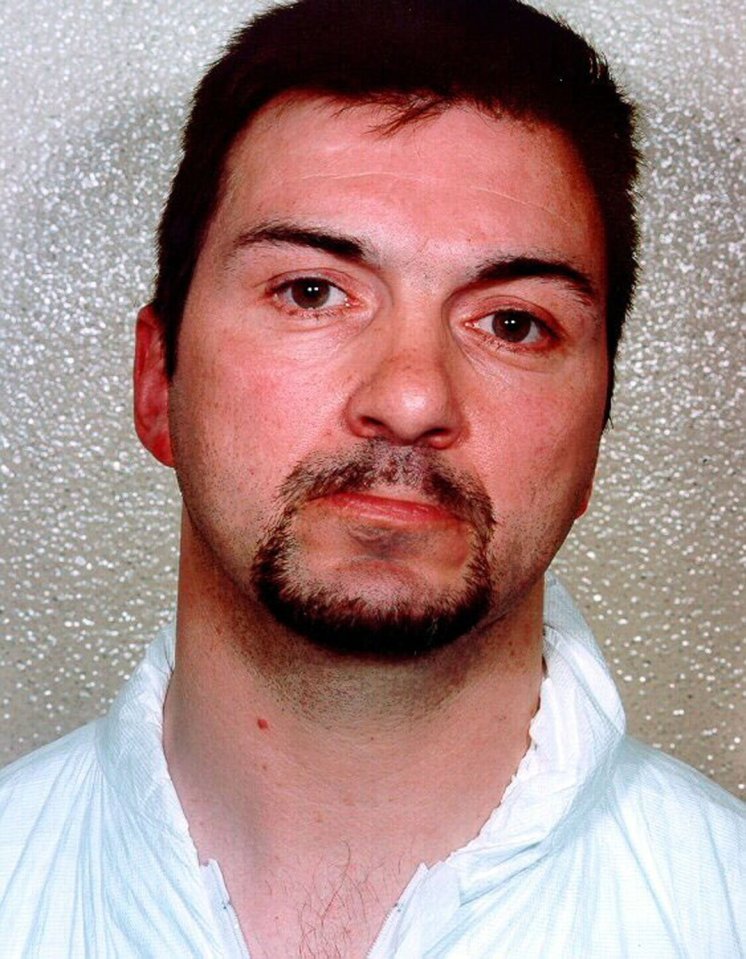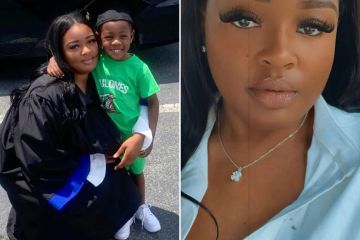AFTER almost 25 years, TV presenter Jill Dando’s murder remains a mysterious and complex case — but for her brother Nigel, it is more straightforward.
He dismisses alternative theories and sticks to his belief her killer was a lone gunman acting spontaneously.
Nigel rejects the suggestion that it was the work of an underworld don who wanted revenge on her for fronting Crimewatch, or that it was a Serbian warlord after she made TV pleas for cash to help Kosovan refugees.
A new Netflix documentary, releasing tomorrow, looks again at the killing of the 37-year-old newsreader, but Nigel refutes any claim that it was an organised hit.
He said: “My belief is that it was someone who was in that street who was armed, saw Jill, recognised her and for whatever reason wanted five minutes of notoriety and killed her.”
The Netflix programme, Who Killed Jill Dando? goes back to the morning of April 26, 1999, when she was shot dead with a single bullet on the doorstep of her home on Gowan Avenue in Fulham, West London.
READ MORE ON JILL DANDO
The bloody circumstances of the killing of Jill, who was seen as TV’s answer to Princess Diana, left her family, friends, colleagues and the entire nation in a state of shock.
And Nigel says: “When you sit back and think about it and look at the evidence there is, I just think (an organised hit) is highly unlikely.
“To organise something like that, probably Jill would have had to have been followed, or someone would have had to have been in her street 24/7.
“But Jill didn’t actually live at her home in Gowan Avenue at the time.
Most read in News TV
“She was toing and froing between the house where she lived in Chiswick with her fiance, Alan.
“Nobody could have known when she was going to be at her house.”
When she was killed, Jill was a hugely popular star of shows including Holiday, Crimewatch and Songs of Praise.
She was also a respected newsreader on BBC One’s News at Six and in 1997 was named BBC Personality of the Year.
Jill had also recently got engaged to her boyfriend, top gynaecologist Alan Farthing who would later oversee the births of Prince William’s children.
Nigel said: “She was at the peak of her professional and private life — she was high profile on TV and had just got engaged, they were making wedding plans for five months after she was murdered.
“It’s not a work of fiction, sadly, it actually happened.
“She had her whole life ahead of her. I can believe it’s been 25 years because I’ve lived through those 25 years.
“But what I’m amazed by is the interest in Jill, who she was, her career and obviously in her murder.
“But she was ubiquitous back then. It’s a bit like talking about Gary Lineker, who if he’s not on Match of the Day is munching crisps, you know. You see him everywhere.
“If he met a similar fate to Jill, we’d still be talking about it 25 years from now.
“Because it's the combination of the most horrendous thing and the most high profile person.”
The Metropolitan Police launched one of the biggest manhunts in the force’s history, speaking to more than 2,500 people and took more than 1,000 statements.
Then in May 2000 they arrested Barry George, now 63, who lived less than half a mile from Jill’s home.
He was a recluse with a personality disorder and previous convictions for indecent assault.
When cops raided his home, they found 2,248 images of women, taken without their permission, on undeveloped film rolls.
They also discovered a photograph of a man in a gas mask — which George denied was him — holding a pistol.
He was convicted of her murder at the Old Bailey and sentenced to life in July 2001.
Then, on his third appeal in August 2008, he was acquitted on the basis that evidence in the original trial couldn’t be taken into consideration.
It was a tiny piece of gunshot residue found inside his coat pocket which police suggested was the result of him firing the lethal shot.
But by 2008 the idea that a particle so small could be used as evidence had been discredited.
Nigel wishes the show’s creators would have asked George one thing: Where were you on the day Jill was gunned down on her doorstep?
Knowing it might provide some kind of closure.
He said: “While he was quite within his rights to not go into the witness box, it would have been helpful to have known.
“He’s never actually told anyone in a court of law what he was doing on the day Jill was killed.
“This (documentary) would have been a real opportunity.
“I don’t know what conditions were carried out between Netflix and Barry George, but it’s an unfortunate omission.”
Nigel, a journalist, would have relished the chance to have gone on the documentary and met with George to ask him the question face-to-face.
The idea that it was a gangland killing carried out because of Jill’s key help on TV’s Crimewatch may be a theory which Nigel dismisses, but in the documentary former armed robber Noel “Razor” Smith seems to back up the suggestion.
But he does not name names.
He says: “I don’t really want to talk about that for my own safety. But there are rumours in the criminal world.
“It’s not who you would think and it’s not Barry George. It was a professional hit.”
Asked if he had any ideas why she was killed, he replied: “No. If I tell you why, you’d know who did it.”
He added: “The way it was done was professional. In the ’80s and ’90s, every hit was in broad daylight in the street.
“The chances of catching a professional who works in that way are slim to none.”
Police did pursue a lead that suggested it may have been an underworld killing, but quickly found it was a dead end.
Although the case remains officially closed, Nigel firmly believes the Metropolitan Police did all they could at the time.
If anything, he sympathises with the difficulties they faced.
He said: “I’ve never ever thought it was scandalous. Some crimes just don’t get solved and I think Jill’s case falls into that category.
“When you see this documentary it casts a fresh light, not least the police inquiry. It sounds mad, doesn’t it?
“For somebody to be gunned down on their doorstep in broad daylight in what you’d think would be a busy street in London.
“But actually that wasn’t a busy street. I can remember walking outside Jill’s house once to buy a paper one morning and I never saw a soul until I got to the newspaper shop.
“The clues that you assume would be there, were not there either.
“I’ve never had a problem with the police and the investigation and I don’t have an issue with it now.”
Nigel also dismisses all the other theories beyond it being an opportunist, lone gunman acting spontaneously.
After almost a quarter of a century, he is sceptical that they will make a breakthrough but is not going to give up appearing in documentaries like this.
He said: “It’s a long shot now because we’re 24 years down the road but I hope that it might just jog someone’s memory about what happened on that day.
“Or it might just prick someone’s conscience and they say, ‘Yeah it was me and I’m going to go to the police and confess — it is highly unlikely.
Read More on The Sun
“I know that sounds heartbreaking, but now I don’t find it heartbreaking. It’s just a fact.”
- WHO Killed Jill Dando? is on Netflix tomorrow.
















